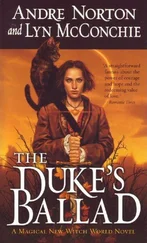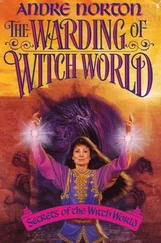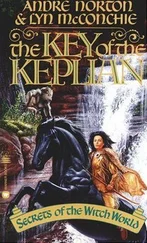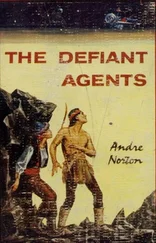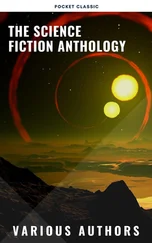“That proves nothing. Whatever his reasons for changing his name, it doesn’t prove that he is Syndrome Johnny any more than it proves he is the cow that jumped over the moon. Syndrome Johnny is a myth, a figment of mob delirium.”
As he said it, he knew it was not true. A Federation investigator would not be on a wild goose chase.
The plates were taken away and cups of steaming black coffee put between them. He would have to warn Johnny. It was strange how well you could know a man as well as he knew Johnny, firmly enough to believe that, despite evidence, everything the man did was right.
“Why must it be a myth?” Camba asked softly.
“It’s ridiculous!” Alcala protested. “Why would any man—” His voice cut off as unrelated facts fell into a pattern. He sat for a moment, thinking intensely, seeing the century of plague as something he had never dreamed....
A price.
Not too high a price in the long run, considering what was purchased. Of course, the great change over into silicon catalysis would be a shock and require adjustment and, of course, the change must be made in several easy stages—and those who could not adjust would die.
“Go on, Doctor,” Camba urged softly. “‘ Why would any man—’“
He tried to find a way of explaining which would not seem to have any relationship to John Delgados. “It has been recently discovered”—but he did not say how recently—”that the disease of Syndrome Plague was not a disease. It is an improvement.” He had spoken clumsily.
“An improvement on life?” Camba laughed and nodded, but there were bitterness and anger burning behind the small man’s smile. “People can be improved to death by the millions. Yes, yes, go on, Senor. You fascinate me.”
“We are stronger,” Alcala told him. “We are changed chemically. The race has been improved!”
“Come, Doctor Alcala,” Camba said with a sneering merriment, “the Syndrome Plagues have come and they have gone. Where is this change?”
Alcala tried to express it clearly. “We are stronger. Potentially, we are tremendously stronger. But we of this generation are still weak and ill, as our parents were, from the shock of the change. And we need silicone feeding; we have not adjusted yet. Our illness masks our strength.” He thought of what that strength would be!
Camba smiled and took out a small notebook. “The disease is connected with silicones, you say? The original name of John Delgados was John Osborne Drake. His father was Osborne Drake, a chemist at Dow Corning, who was sentenced to the electric chair in 1967 for unauthorized bacterial experiments which resulted in an accidental epidemic and eight deaths. Dow Corning was the first major manufactury of silicones in America, though not connected in any way with Osborne Drake’s criminal experiments. It links together, does it not?”
“It is not a disease, it is strength!” Alcala insisted doggedly.
The small investigator looked up from his notebook and his smile was an unnatural thing, a baring of teeth. “Half the world died of this strength, Senor. If you will not think of the men and women, think of the children. Millions of children died!”
The waiter brought the bill, dropping it on the table between them.
“Lives will be saved in the long run,” Alcala said obstinately. “Individual deaths are not important in the long run.”
“That is hardly the philosophy for a doctor, is it?” asked Camba with open irony, taking the bill and rising.
They went out of the restaurant in silence. Camba’s ‘copter stood at the curb.
“Would you care for a lift home, Doctor Alcala?” The offer was made with the utmost suavity.
Alcala hesitated fractionally. “Why, yes, thank you.” It would not do to give the investigator any reason for suspicion by refusing.
As the ‘copter lifted into the air, Camba spoke with a more friendly note in his voice, as if he humored a child. “Come, Alcala, you’re a doctor dedicated to saving lives. How can you find sympathy for a murderer?”
Alcala sat in the dark, looking through the windshield down at the bright street falling away below. “I’m not a practicing medico; only one night a week do I come to the hospital. I’m a research man. I don’t try to save individual lives. I’m dedicated to improving the average life, the average health. Can you understand that? Individuals may be sick and individuals may die, but the average lives on. And if the average is better, then I’m satisfied.”
The ‘copter flew on. There was no answer.
“I’m not good with words,” said Alcala. Then, taking out his pen-knife and unfolding it, he said, “Watch!” He put his index finger on the altimeter dial, where there was light, and pressed the blade against the flesh between his finger and his thumb. He increased the pressure until the flesh stood out white on either side of the blade, bending, but not cut.
“Three generations back, this pressure would have gone right through the hand.” He took away the blade and there was only a very tiny cut. Putting the knife away, he brought out his lighter. The blue flame was steady and hot. Alcala held it close to the dashboard and put his finger directly over it, counting patiently, “One, two, three, four, five—” He pulled the lighter back, snapping it shut.
“Three generations ago, a man couldn’t have held a finger over that flame for more than a tenth part of that count. Doesn’t all this prove something to you?”
The ‘copter was hovering above Alcala’s house. Camba lowered it to the ground and opened the door before answering. “It proves only that a good and worthy man will cut and burn his hand for an unworthy friendship. Good night.”
Disconcerted, Alcala watched the ‘copter lift away into the night, then, turning, saw that the lights were still on in the laboratory. Camba might have deduced something from that, if he knew that Nita and the girl were not supposed to be home.
Alcala hurried in.
Johnny hadn’t left yet. He was sitting at Alcala’s desk with his feet on the wastebasket, the way Alcala often liked to sit, reading a technical journal. He looked up, smiling. For a moment Alcala saw him with the new clarity of a stranger. The lean, weathered face; brown eyes with smile deltas at the corners; wide shoulders; steady, big hands holding the magazine—solid, able, and ruthless enough to see what had to be done, and do it.
“I was waiting for you, Ric.”
“The Feds are after you.” Ricardo Alcala had been running. He found he was panting and his heart was pounding.
Delgados’ smile did not change. “It’s all right, Ric. Everything’s done. I can leave any time now.” He indicated a square metal box standing in a corner. “There’s the stuff.”
What stuff? The product Johnny had been working on? “You haven’t time for that now, Johnny. You can’t sell it. They’d watch for anyone of your description selling chemicals. Let me loan you some money.”
“Thanks.” Johnny was smiling oddly. “Everything’s set. I won’t need it. How close are they to finding me?”
“They don’t know where you’re staying.” Alcala leaned on the desk edge and put out his hand. “They tell me you’re Syndrome Johnny.”
“I thought you’d figured that one out.” Johnny shook his hand formally. “The name is John Osborne Drake. You aren’t horrified?”
“No.” Alcala knew that he was shaking hands with a man who would be thanked down all the successive generations of mankind. He noticed again the odd white web-work of scars on the back of Johnny’s hand. He indicated them as casually as he could. “Where did you pick those up?”
John Drake glanced at his hand. “I don’t know, Ric. Truthfully. I’ve had my brains beaten in too often to remember much any more. Unimportant. There are instructions outlining plans and methods filed in safety deposit boxes in almost every big city in the world. Always the same typing, always the same instructions. I can’t remember who typed them, myself or my father, but I must have been expected to forget or they wouldn’t be there. Up to eleven, my memory is all right, but after Dad started to remake me, everything gets fuzzy.”
Читать дальше

